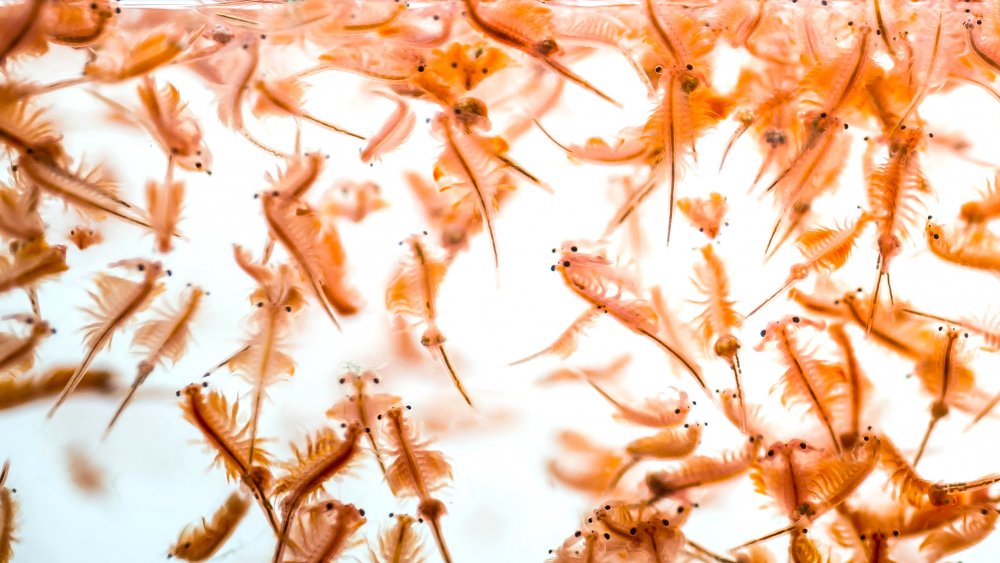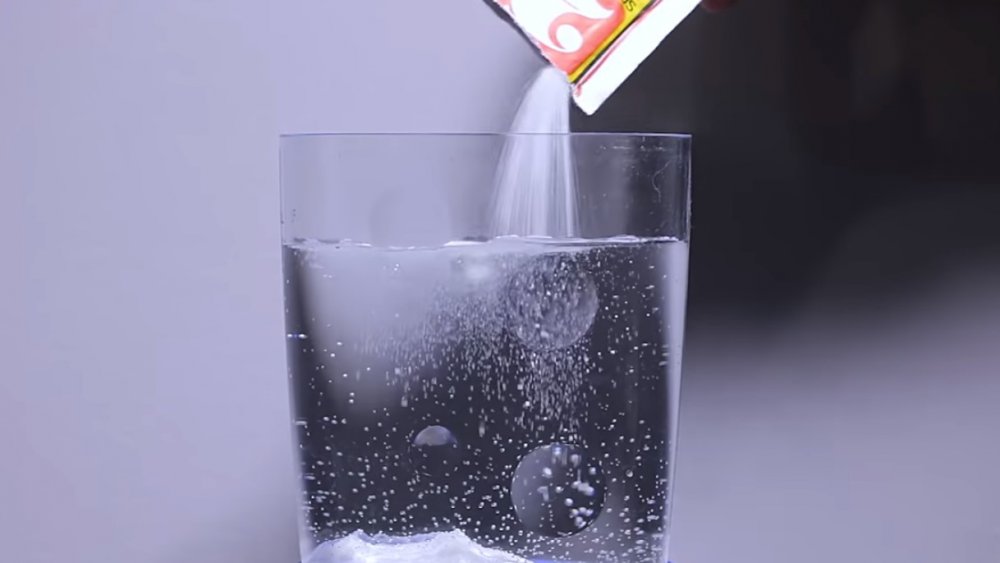The Untold Truth Of Sea-Monkeys
Sea-Monkeys: From the in-betweeny bits of comic books, they smiled at the sight of you, their potential new ruler, and you knew that you were $4.95 plus shipping removed from a magical friendship and, quite possibly, world domination, thanks to the subservient species of Atlantean mer-creatures now within your grasp. You would be a good king, you promised yourself. Fair and loving, but also unafraid to crush dissidence and stomp out aquatic rebellion.
Anyway, eight to ten business days later, you had a plastic rectangle full of tap water and brine shrimp and "Won't Get Fooled Again" by the Who pumping through your head on repeat. How did you get to this point? Courtesy of a Nazi sympathizer, that's how.
Sea-monkey see, Do-monkey do
The story begins with one Harold Nathan Braunhut of Memphis, Tennessee. According to his obituary in The Telegraph, in the 1950s, he started going by Harold von Braunhut in order to distance himself from his Jewish heritage and sound more German, and if everything about that sentence doesn't make you uncomfortable, maybe do some self-reflection.
Harold saw the money being made by ant farms in the late '50s and got dollar signs in his eyes. Through a collaboration with a marine biologist, he developed "Instant Life" packets, which contained a dry mix of water purification chemicals, salt, nutrients, and brine shrimp eggs. By 1962, he'd rebranded his creation as Sea-Monkeys, and a media powerhouse was born: in the book Timeless Toys: Classic Toys and the Playmakers Who Created Them, Braunhut is quoted as saying that he bought "3.2 million pages of comic book advertising a year."
Speaking of things that he bought, Braunhut used his meteoric financial rise to help fund, and this is a hoot, the Ku Klux Klan, with the Southern Poverty Law Center confirming that he paid for weapons for an Ohio faction of the hate group. He also reportedly pledged $25 to the Aryan Nations for every member who purchased another of his inventions: a coil-spring extendable metal baton he described as the perfect weapon "if you need a gun but can't get a license."
On a lighter note, did you know that Apollo 16 astronauts took Sea-Monkeys into space? That's fun, right? It's probably the lightest note to end on, since Option B would be to bring up the body horror nightmare that was the live action 1992 Sea-Monkeys television show featuring actors in prosthetics which call to mind a series of horrible lab experiments begging for the sweet release of death. Unsurprisingly, Howie Mandel was involved.

